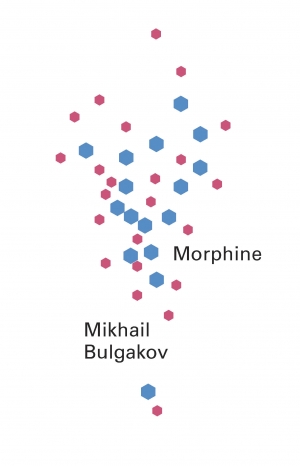 Mikhail Bulgakov is a landmark twentieth century writer. You could be excused from knowing that if you haven’t read his greatest work, The Master and Margarita, a wild, sideshow carnival kind of read, oddly beautiful, which takes place chiefly in the writer’s beloved Moscow. That is, when his characters aren’t being magically transported to remote places by the devil, a wonderfully humorous demonic imp who sometimes drives his victims insane by cancelling their sense of reality. Much of Bulgakov’s work was banned or unpublished during his lifetime. He seems to have narrowly escaped Stalin’s purges.
Mikhail Bulgakov is a landmark twentieth century writer. You could be excused from knowing that if you haven’t read his greatest work, The Master and Margarita, a wild, sideshow carnival kind of read, oddly beautiful, which takes place chiefly in the writer’s beloved Moscow. That is, when his characters aren’t being magically transported to remote places by the devil, a wonderfully humorous demonic imp who sometimes drives his victims insane by cancelling their sense of reality. Much of Bulgakov’s work was banned or unpublished during his lifetime. He seems to have narrowly escaped Stalin’s purges.
His sharply satiric, often bizarre narratives, can have a Twilight Zone-like air of unreality at twice the intelligence level and emotional force. As a fan, I ascribed Bulgakov’s pricelessly bizarro point of view to his unique, genetically granted, writer’s talent. That, and the pressure of living in Moscow under Stalin. I didn’t suspect that there might be a chemical component to his imagination.
But I was impressed to learn, from reading New Directions welcome issue of this longish story, that Mikhail was a doctor before becoming a writer. During World War I he served in the Red Cross, was seriously injured, and for a brief period became addicted to morphine. As a doctor, he would have had ready access to the drug and could have administered it to himself.
I’ve heard at times that writers may feel they need to use drugs to break open their minds and stimulate a fresh perspective. To take drugs even merely to work, to write like a demon, hour after hour, brilliantly…or at least with the temporary sense that their work seems brilliant…which enables them to keep writing by sustaining their self-confidence.
The discovery that Bulgakov’s art might, at least at one time, been affected by substance abuse changed my attitude toward his sense of reality. It was certainly interesting that Bulgakov was by training a medical man, a man of science, who knew about the effects of drug addiction from first hand experience.
It’s brilliant that there are two doctors playing off each other in Morphine.
Vladimir Mikhailovich, the first doctor introduced, is the “normative” physician, the regular guy. Doctor M is introduced in a manner that dovetails into the psychogenic situation of his unfortunate colleague from medical school, Doctor Polyakov. Doctor P will end up replacing Vladimir in his harsh first assignment as a physician.
In 1917, Vladimir is assigned to the remote Gorelovo district where he is responsible for the healthcare of the local farmers. He’s aided by one feldscher, Maria Vlasyevna, a trained assistant.. She doesn’t live with him but next door so he’s isolated. Reading the week-old newspaper from Moscow and staring out at the desolate beauty of the forest are among Doctor Mikhailovich’s few diversions.
When Vladimir is transferred to the district town, his smug satisfaction with the move reinforces our sense of him as a typical Bulgakov character, the regular joe who doesn’t want any trouble and who loves his bourgeois comforts.
Doctor Polyakov replaces him in the sticks. He’s the dark doctor, the one who falls through the rabbit hole.
Polyakov, plagued during the night with a sudden abdominal pain, takes a morphine solution for relief. It’s clever that Bulgakov implies that there might be no physical reason for the pain. The doctor doesn’t have any history of intestinal disorders. So the discomfort might be the result of his anxiety at being a physician coping on his own in a desolate environment with minimal resources.
Bulgakov uses the device of a notebook for Polyakov to record his collapse. Bulgakov is deft in the use of this prop, having Polyakov tear out the opening pages, make entries that are erratic, fragmentary and increasingly irrational.
Polyakov lurches between optimistic entries on the use of morphine to expressions of despair with almost no transitions between being euphoric or depressed.
Bulgakov does have a way with hallucination! It occurs out of nowhere, a terrifying rupture in the plane of reality. It erupts when Dr. Polyakov is taking a walk in the forest to relieve his nerves. I won’t tell you what the hallucination is, but it’s horrific in its ordinariness and in its sense of doom as it forecloses on Polyakov’s sanity.
In the end the insane doctor, Polyakov, is delivered into the hands of the smug but decent doctor, Mikhailovich. Two fictional doctors, one crazy, one conventionally healthy. But are they both Mikhail Bulgakov? Only a writer could answer a question like that…but they don’t.







